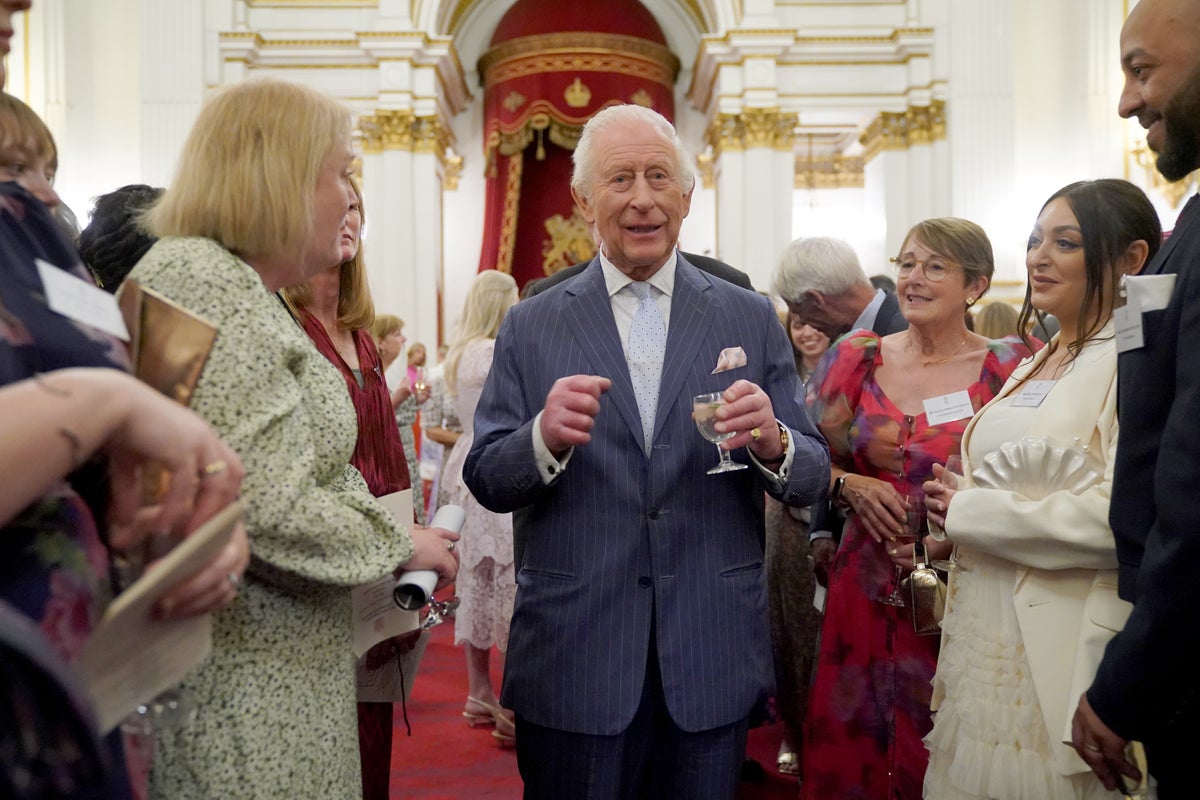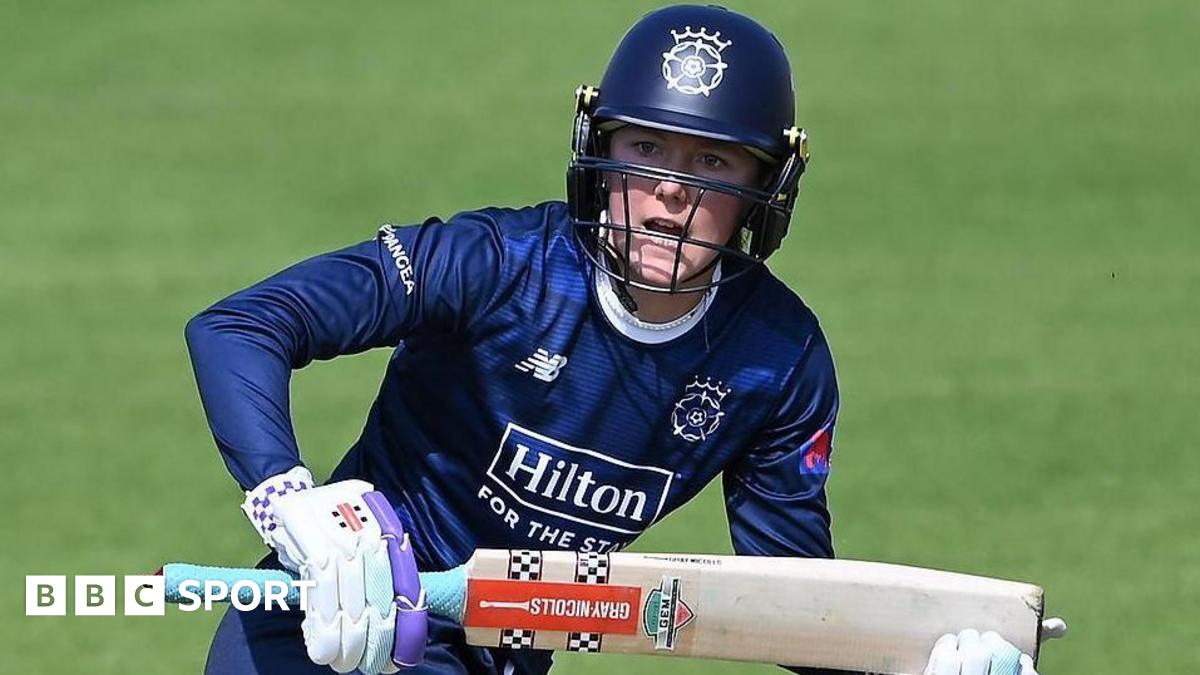The King has issued a deeply personal and poignant message about living with cancer, saying his experience of the disease had brought into “sharp focus the very best of humanity”.
Charles said his diagnosis is “daunting and at times frightening” as he heaped praise on cancer charities, telling them: “You have my whole family’s deepest admiration and gratitude.”
The 76-year-old monarch’s remarks came in a personal, written message, released to coincide with a Buckingham Palace reception he hosted to celebrate organisations helping people with the disease.
Read the King’s message in full here

The King described himself as one of the “statistics” among the 390,000 who “sadly” receive a cancer diagnosis across the UK each year – but said he could vouch that it “can also be an experience that brings into sharp focus the very best of humanity”.
Charles, who is still undergoing treatment more than a year on from his diagnosis, revealed his cancer journey had given him “an even deeper appreciation of the extraordinary work” of the charities.
He also said it had reinforced how “the darkest moments of illness can be illuminated by the greatest compassion”.
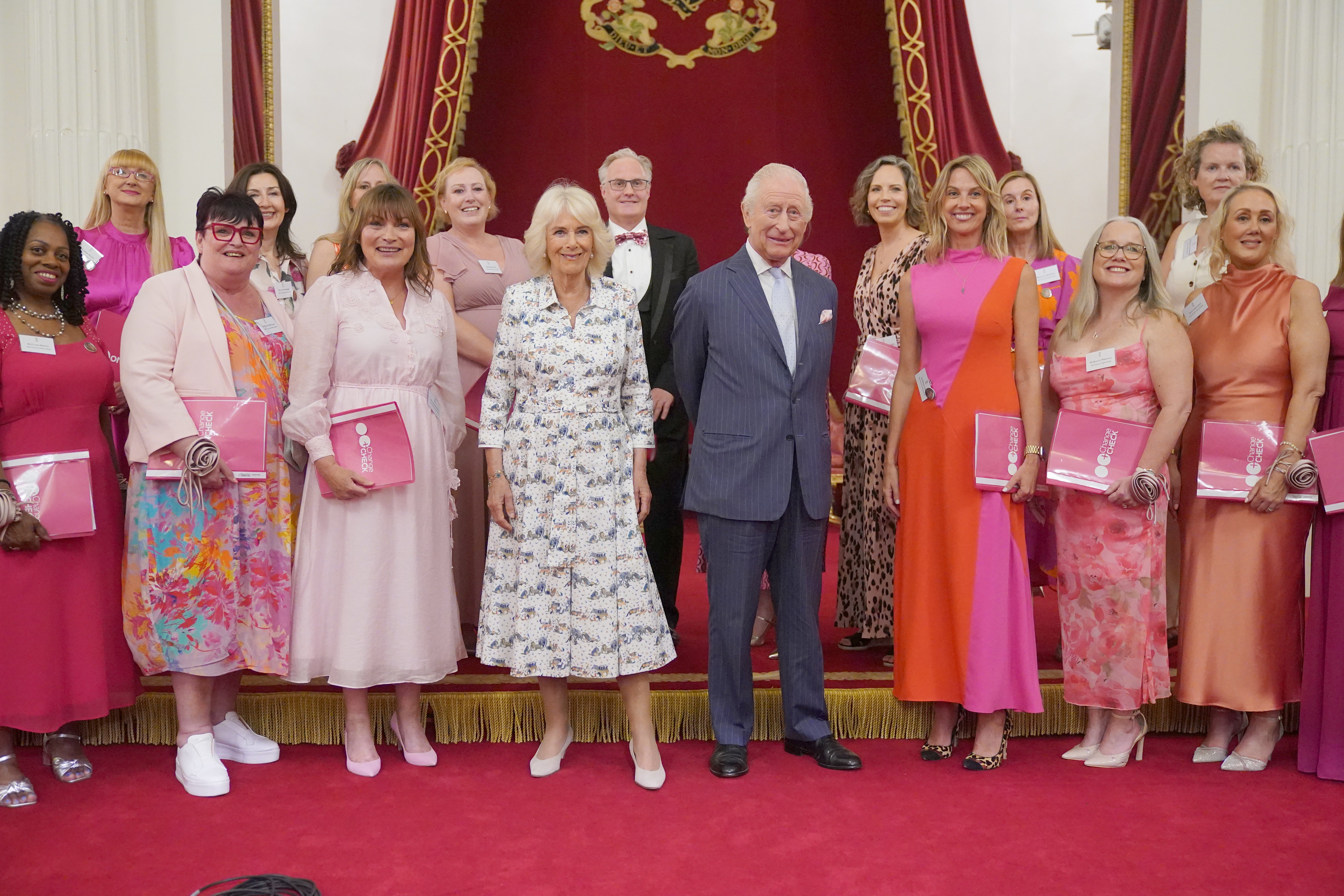
And he hailed the late Dame Deborah James as an inspiration, quoting her final message and encouraging everyone to follow her example: “Find a life worth enjoying; take risks; love deeply; have no regrets; and always, always have rebellious hope.”
Dame Deborah died in June 2022 at the age of 40, five years after she was diagnosed with bowel cancer, and her Bowelbabe fund has raised more than £16 million since it was launched.
The King’s message was printed in a booklet given out at the Palace’s Wednesday evening reception to guests, including Dame Deborah’s parents Heather and Alistair.
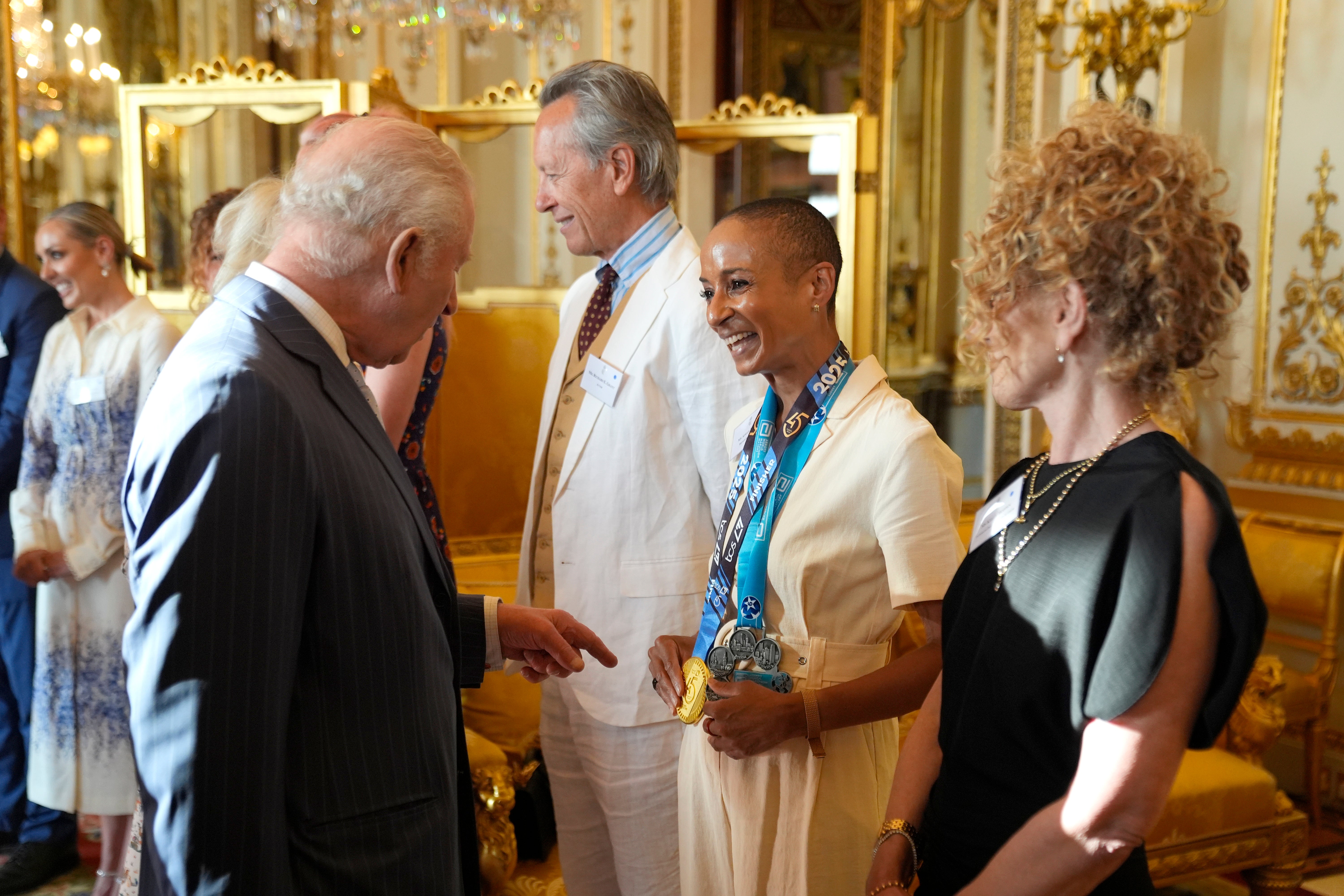
A royal source said there was no update on the King’s condition or treatment, but that it continued in a “very positive direction”, reflected in his “very full” national and international diary programme.
They described the words and subject of the message as “deeply personal” for the King.
The King wrote: “My wife and I are delighted to host you here this evening to celebrate and above all thank those who so selflessly give care, comfort and reassurance to the 390,000 people who, sadly, receive a new cancer diagnosis across the UK each year.
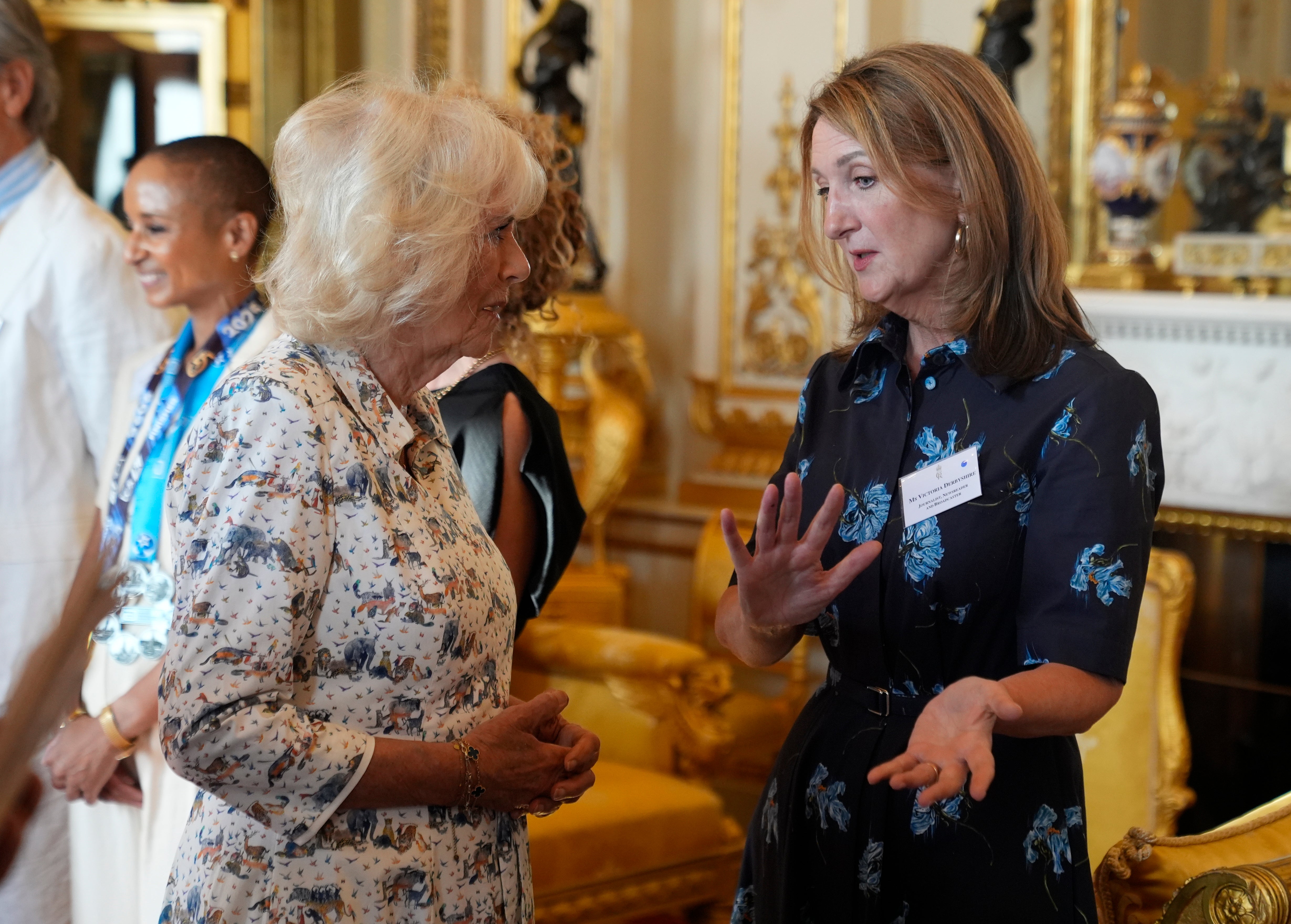
“That is over 1,000 new cases every single day.”
“Each diagnosis, each new case, will be a daunting and at times frightening experience for those individuals and their loved ones.
“But as one among those statistics myself, I can vouch for the fact that it can also be an experience that brings into sharp focus the very best of humanity.
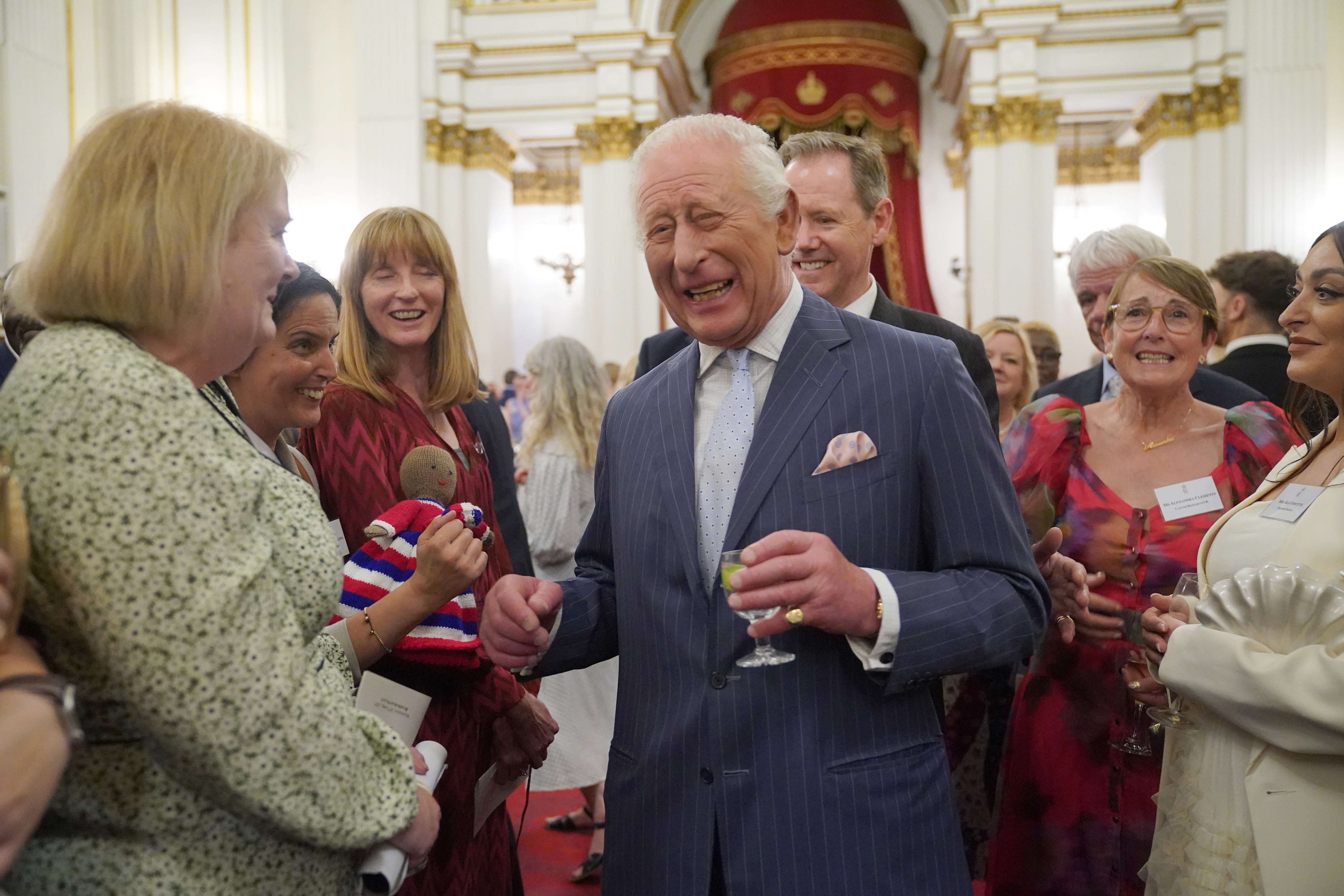
“It has certainly given me an even deeper appreciation of the extraordinary work undertaken by the remarkable organisations and individuals gathered here this evening, many of whom I have known, visited and supported over the years.
“And it has reinforced what I have long observed during these visits – that the darkest moments of illness can be illuminated by the greatest compassion.”
The monarch and the Queen invited representatives from their cancer charity patronages, Macmillan Cancer Support, Breast Cancer Now, Maggie’s and Children’s Hospice South West, to the royal residence.
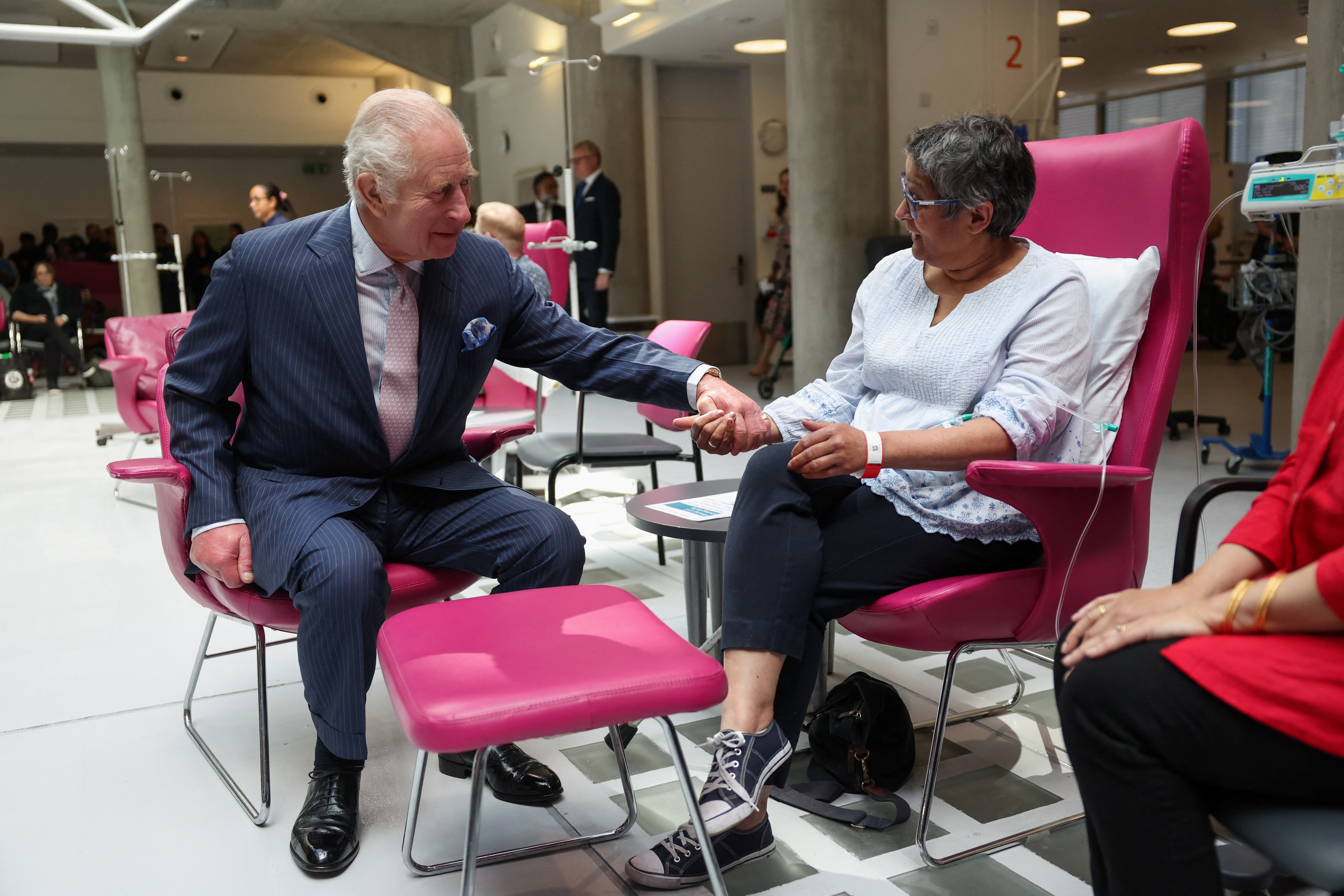
The King wrote how he and Camilla had seen “first-hand” as patrons how the organisations fund vital research and offer sanctuaries to patients and their families.
He said he was struck by the “profound impact of human connection” whether “careful explanation from a specialist nurse, the hand held by a hospice volunteer, or the shared experience in a support group”.
“These moments of kinship create what I might call a ‘community of care’, one that sustains patients through the most difficult of times,” Charles said.
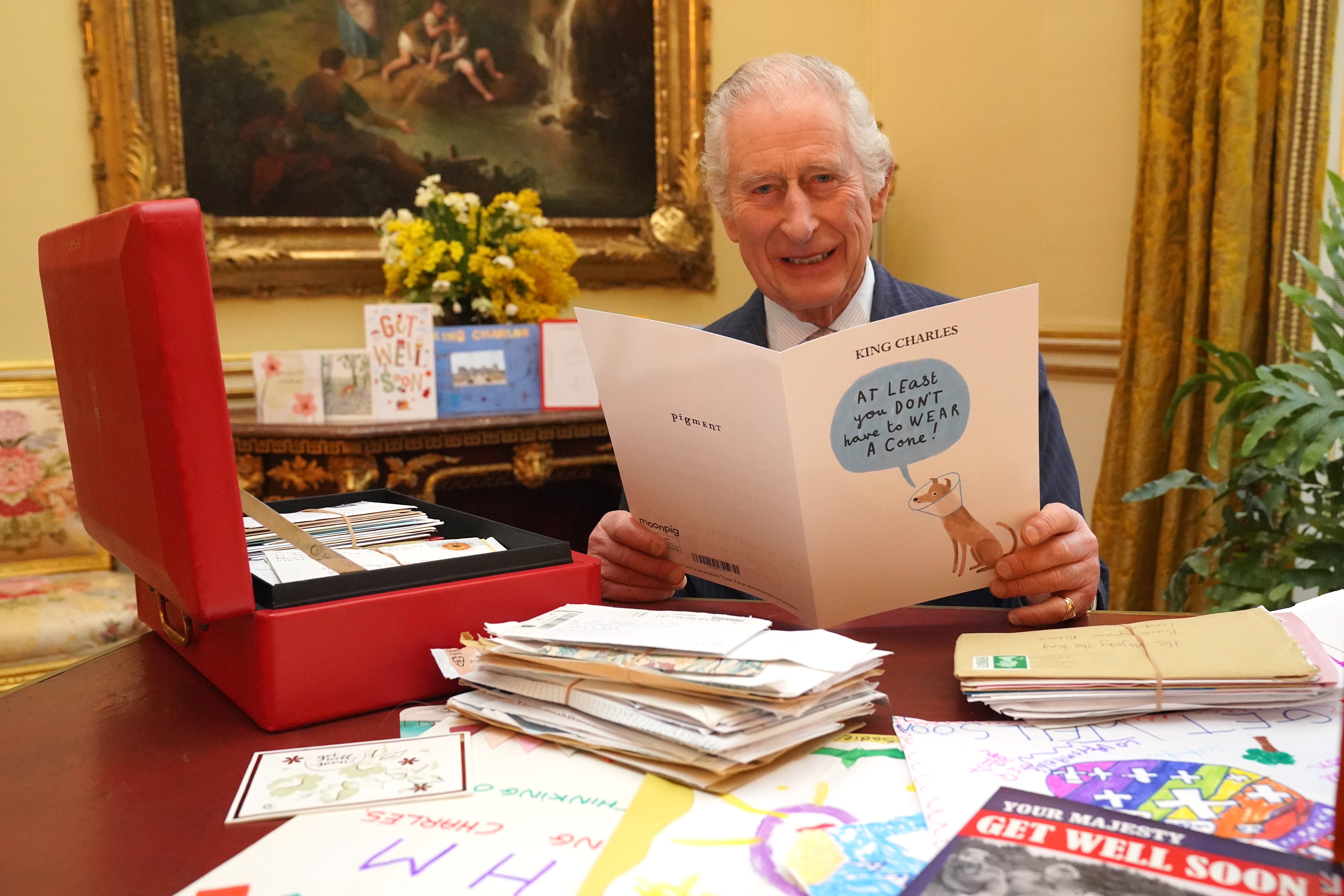
His cancer diagnosis, undisclosed in its type, early in 2024, following a procedure on an enlarged prostate, marked the start of what his eldest son the Prince of Wales described as the most “brutal” year with the Princess of Wales also being diagnosed with cancer.
Kate is now in remission after finishing her chemotherapy treatment last summer.
She and William celebrated their 14th wedding anniversary on the Isle of Mull on Tuesday, spending the day recognising the secluded Scottish island’s rural community.
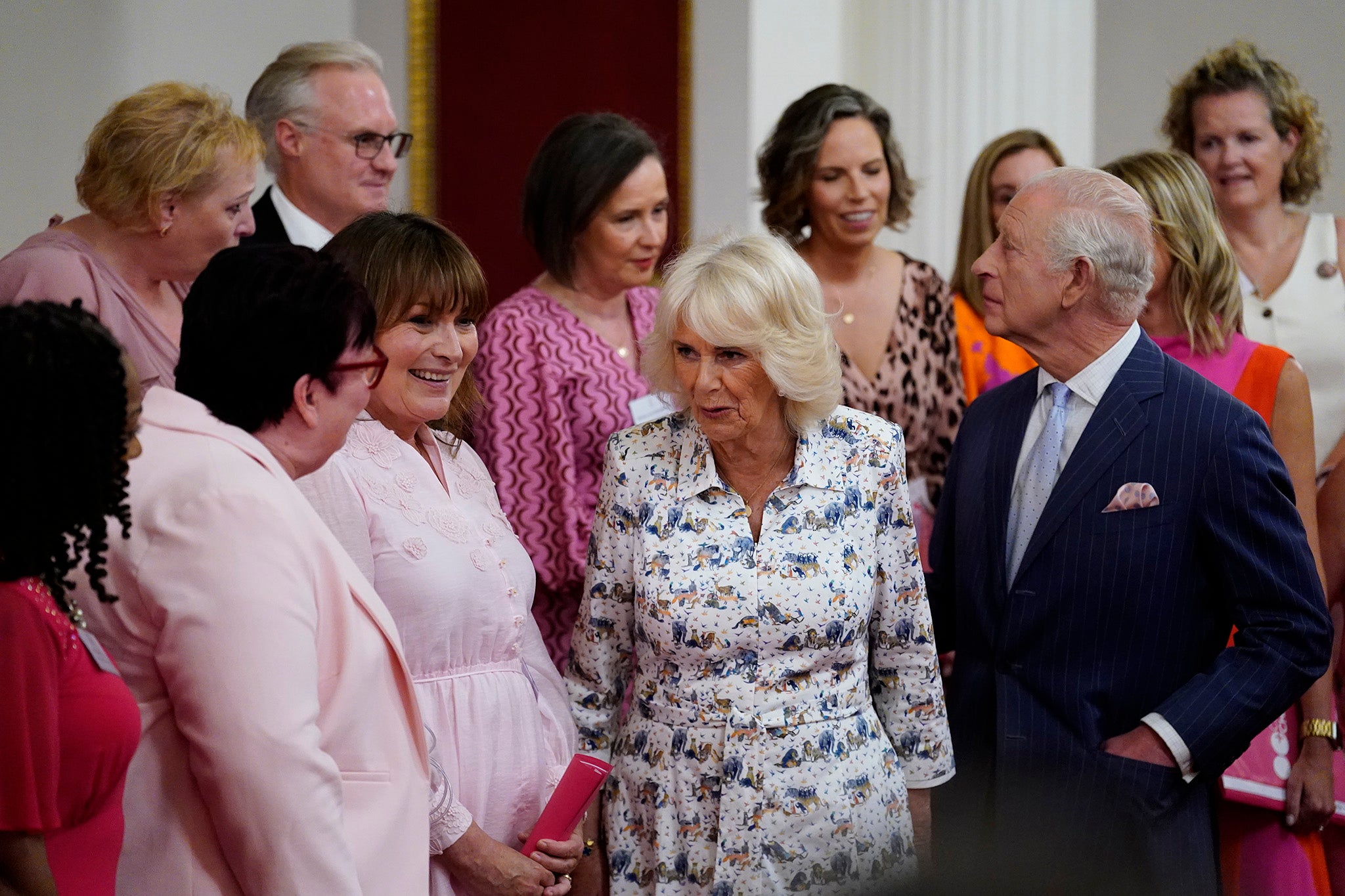
The King gave his thanks on behalf of the royal family to researchers working on breakthroughs, those offering specialist treatment, and also to campaigners.
“So to all the researchers pursuing pioneering breakthroughs; to the healthcare professionals providing specialist treatment; to the volunteers offering comfort, or campaigning to raise awareness; and to the fundraisers enabling all this vital work – you have my whole family’s deepest admiration and gratitude,” he said.
In March this year, the King “required a short period of observation in hospital” after experiencing side effects from his treatment.
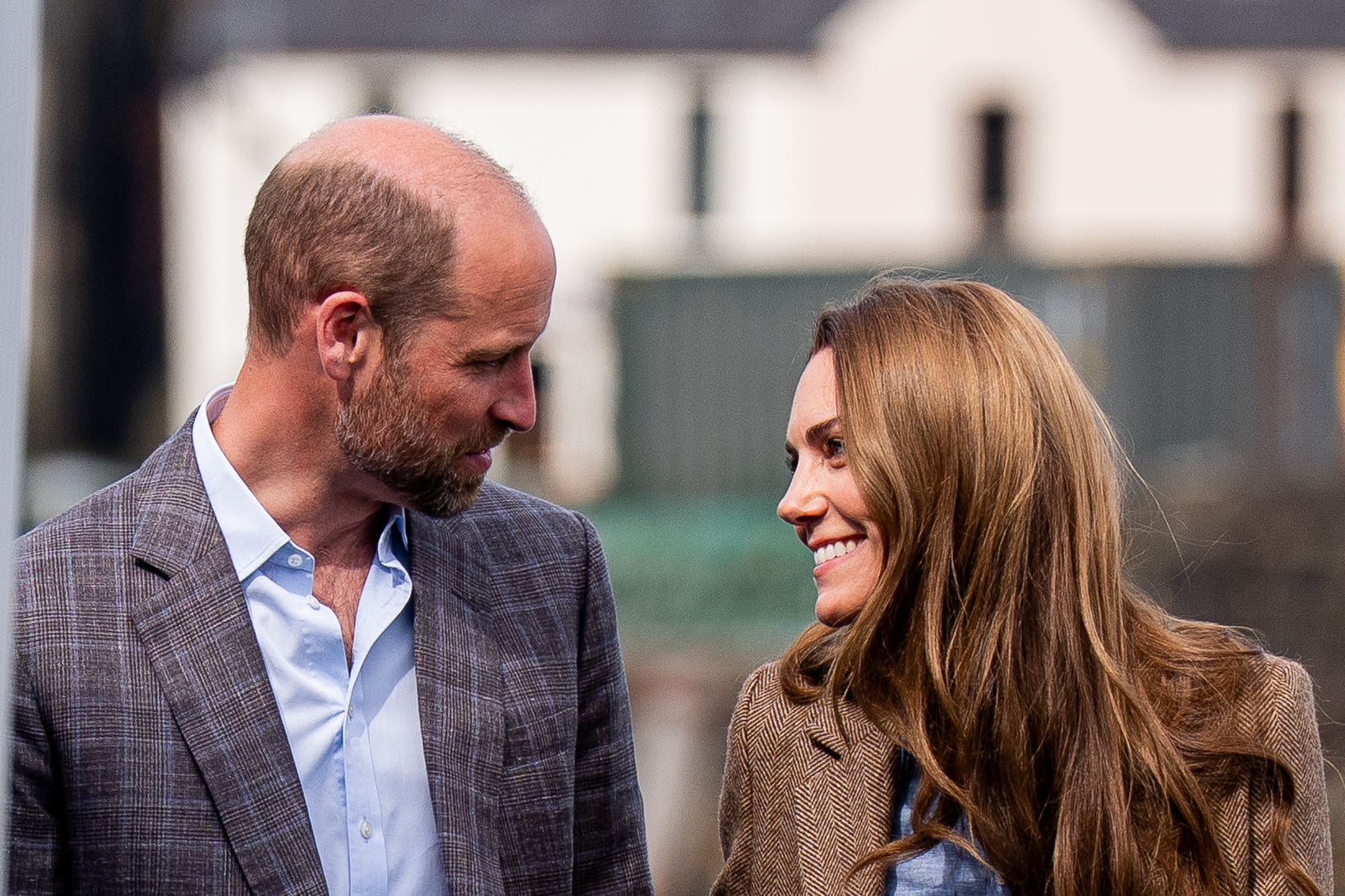
Charles, who is known for being a workaholic, is said to have thrived on carrying out public and state duties in recent months, seeing them as being of great benefit to his overall wellbeing.
Camilla said, to mark their 20th wedding anniversary at the start of April, that the King was “driven” by helping others and indicated his cancer journey was one of “recovery”.
At the reception, Charles and Camilla were being joined by cancer charity champions including radio presenter Adele Roberts, former footballer Ashley Cain and actor Richard E Grant.
Displays at the reception showcased groups such as Move Dance Feel, which unites women affected by cancer through dance, Rainbow Boxes, which offers practical items as people start cancer treatment, and Wigs for Heroes, which supports people undergoing cancer treatment.
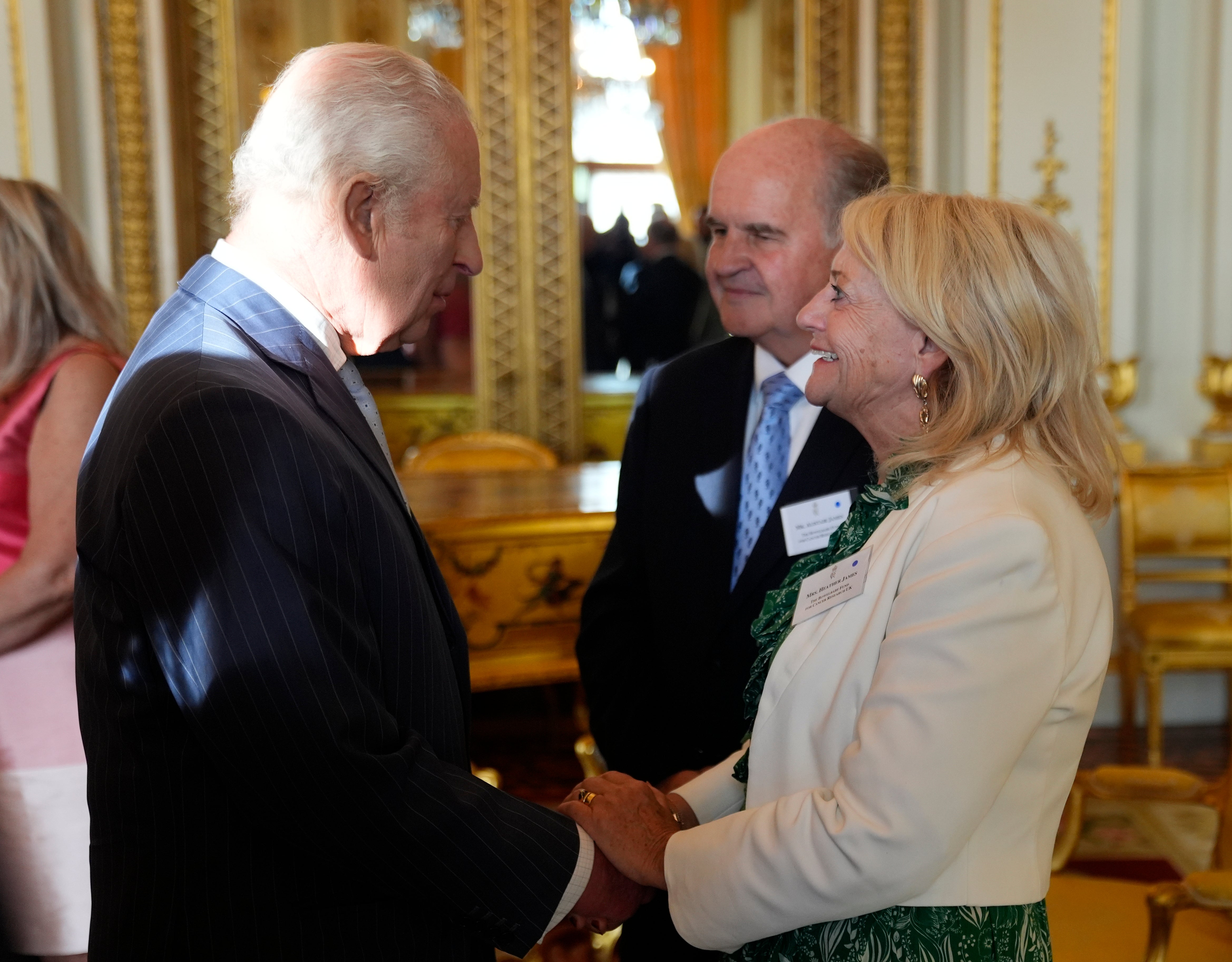
Gemma Peters, chief executive at Macmillan Cancer Support, said: “We are so grateful to his majesty for his continued support, both as our patron and for being so open about his own cancer experience, which has inspired so many others to reach out for support from organisations like Macmillan.
“Every day we see the impact that cancer is having on people’s lives and that experience is even worse for some people because of who they are or where they live, which is entirely unacceptable. We are on a mission to transform cancer care, but we cannot do it on our own.
“It’s incredible to see so many different community groups and organisations who are doing brilliant work for people living with cancer.”

